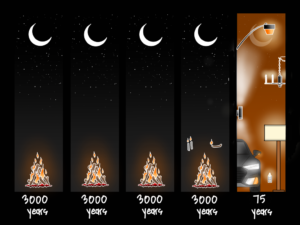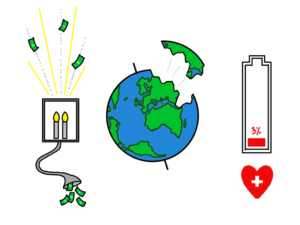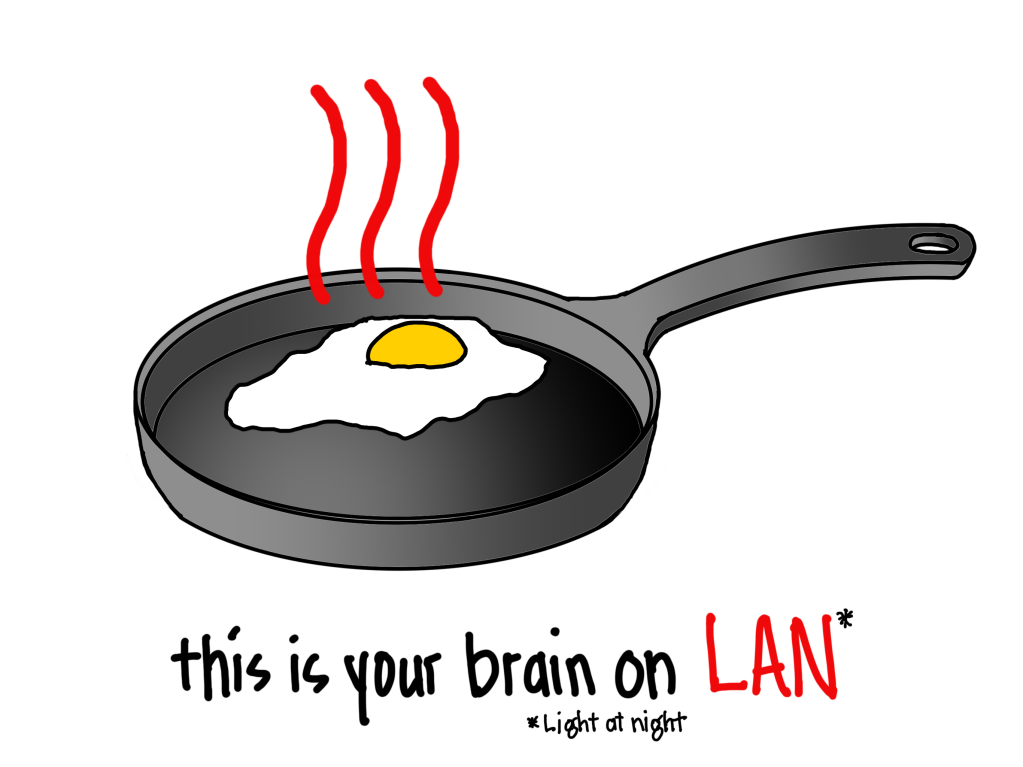In the beginning…
I occasionally begin conference presentations or lectures with a brief look at the historic importance of light to our ancestors. I might mention ancient Egyptian worship of the sun-god Ra, tell stories of Helios riding his chariot into the sky to start the day as a Greek Titan, or quoting “God is Light” from the Quran. I then end up in my own Judeo-Christian heritage with the first words spoken by God in our book of Genesis: Let there be light.
This light-centric focus gives me purpose and serves as a foundational belief that light can help us live better lives.
But I missed something important when I skipped past the fact that all these stories – and the big bang – start with darkness. I did not pay much attention to the next verse that talked about separating the dark from the light, and I did not notice that light did not banish darkness completely but simply complement it.
In other words, darkness is important, and I have spent the last few decades chasing it away.
I am currently reading “The End of Night” by Paul Brogan, a wide-ranging journalistic look at darkness- or, more accurately, our lack of it. Living with light at night (LAN) has a ridiculous amount of deleterious effects on humans, our animal companions, and the world we inhabit.

Outside, a vast majority of Americans can see only a few stars on a given night, not the thousands one might view from a dark mountaintop. Light pollution – which is essentially light that is spilled into nature where it is of absolutely no use to a human – is caused by lights that point into the sky, or shine in all directions, or bounce of snow and clouds until it is bright enough to read a book at night.
Inside, we live in a perpetual state of twilight, never experiencing darkness until the moment we try to sleep, if then. Too many of us have light coming in our windows from a neighbor’s garage or a city’s streetlight or passing cars. Too many of us have little lights in our space like alarm clocks and smoke detectors and thermostats and charging phones.
Lack of true darkness is easy to notice if you are looking for stars, or if you are sea turtle that heads towards the patio instead of the ocean, being devoured by predators along the way. Lack of true darkness is noticeable if you are a bird but might be subconscious for the rest of us. When you go to sleep tonight, look around you. Can you see anything at all? Is there light in your room?

So what’s the problem with LAN or lack of darkness? Why does the EU categorize night shift work as “possibly carcinogenic?” Why am I talking about darkness as a lighting designer?
Wasted money.
If you have “brass and glass” coach-house style lanterns on your garage, try to estimate what percentage of the light hits the driveway where you walk, how much enters your eyes as glare, and how much goes up into space. Most of us have lighting that sends quite a bit into space – it’s how we get those cool photos of the earth at night that show us where population is dense.
The problem is that there is no use for that light, and that is simply a waste. Every time we turn on those fixtures (or the city turns on the streetlights), we burn energy for no good reason. Every time we burn energy for no good reason, we waste money and deplete resources without any gain at all.
Planetary degradation.
Wasted light, unfortunately, does not just waste our money and our energy. It also puts that energy, in the form of light, into skies that have been dark for thousands of years. Flora and fauna lack the ability to evolve as quickly as we have illuminated the planet, and the results are devastating. Bird migrations are disrupted. Bats head to the Las Vegas strip, leaving insects to flourish elsewhere. Turtles get eaten.
At the same time, we must produce the energy that we then waste by sending light upwards. We have to tear apart entire mountains for coal, run pipelines across the prairie for oil, or use metals and electronics and plastics to build extra wind turbines all to create electricity that we waste into space. This accelerates our use of planetary resources and contributes to climate change, worsening the environmental impact of our light.
Lack of good sleep.
So what if we waste money and burn extra coal and cause some turtles to die? Even if you are not concerned with any of these, finding and preserving darkness should be a priority for every human on the planet, because we need it to sleep.
I have an easy demonstration I like to do when teaching others about light and wellness. I ask a volunteer to close their eyes and then raise their hand when they think I am waving a flashlight in front of their face.
They never get it wrong. They know exactly when I shine the light at them, even when their eyes are closed. Because our eyes are looking for light signals even when we sleep. Light is one of the key signals our bodies need to sleep well and wake refreshed. That is important – so important that sleeping with light at night is now considered a potential health hazard by those on the front lines of human wellness.
In other words, the very light we depend on for safety and utility at night may be shortening our lives.
This is the second post of my 2023 Light Can Help Us series. Read more HERE.
